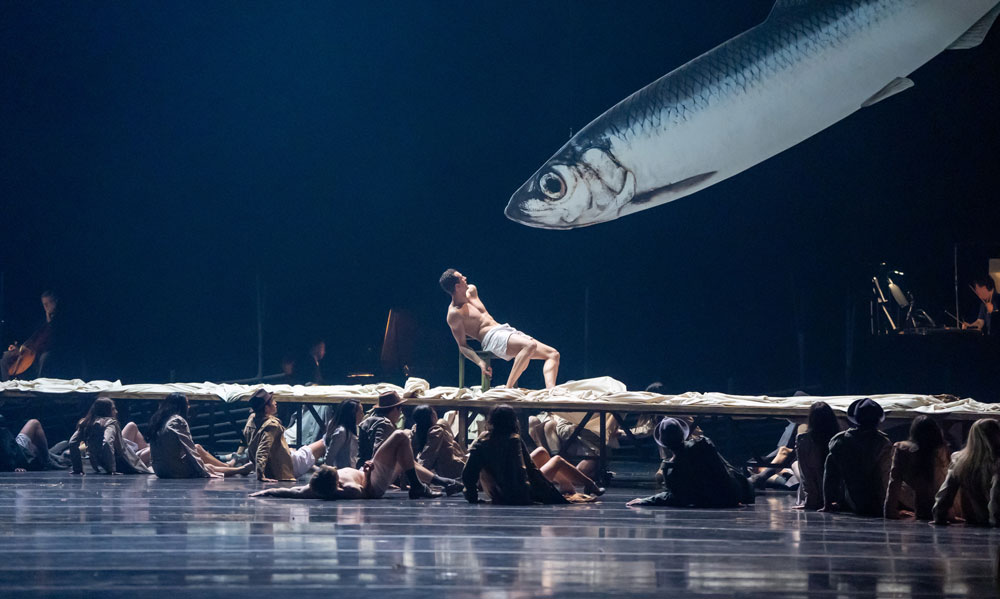Guillermo del Toro’s interpretation of life gets more interesting every time he gives an interview. Conversations with him these days center around his beautiful new animated reimagining of Pinocchio. We all know the story of the wooden puppet whose nose grows when he tells a lie. Somehow, what happens to his nose overshadows the fact that what Pinocchio wants most is not to be a puppet, but a person. A real boy. Del Toro’s keeps both of those facts about Pinocchio as essential parts of the story and then shows how the rest of the world responds to the things that make Pinocchio so exceptional.
The movie is already considered one of the best of its type ever made. Stop action animation is a painstaking process. Objects are made to move in very small increments between filmed frames so that they look like they possess independent movement when the film is played back. The affect is otherworldly and fantastical. And in del Toro’s hands, extraordinarily beautiful.
Staying true to all the key elements of the original story created by Carlo Collodi in 1883, this 2022 version takes a few liberties with the original story that gives this Pinocchio its own singular personality. Although set in a small Italian village, in keeping with the original’s heritage, the timeframe is more than fifty years after Collodi penned his masterpiece and settles in WWII Italy during Mussolini’s fascist regime. Colors reflect the tone of the times. Even when expressing joy and fulfillment, there’s a reserve in the colors heat. As the film progresses, they slide from nostalgic to somber and from menacing to a palette that encourages hope.
The ravages of war are nowhere near the idyllic world Geppetto shares with his small son, Carlo, in their cottage outside of town. The only things that seem unusual are that there’s no Mrs. Geppetto and that Geppetto looks too old to have such a young son. But the devotion and love they have for one another transcends those small concerns. A gifted craftsman admired for his brilliant skills with wood, and respected for his character, Geppetto is a man living in rarefied contentment until the insanity of war upended his world when an errant aerial bomb took his son from him.
When it’s real and deep, depiction of grief’s pain can be beautiful because its authenticity acts as a natural connector. You’d never expect to find it portrayed so genuinely in an animated children’s film. Geppetto’s despair at losing Carlo is a plunge; a freefall into remorse. His work comes to an end. His world is reduced to his cottage and Carlo’s grave. Abject remorse tinged with madness gives him the idea to make a new son to act as a substitute for the one he lost. This one though would be made of pine. Fueled by alcohol and anxiety, Geppetto looks like a crazed scientist in the throes of creating a monster. Much more the product of despair and hard times, this new son, Pinocchio, would never have a place in the pastel splendor of Disney. This creation would reflect the times when the struggle of life can be seen in people’s faces.
Geppetto’s replacement boy isn’t finely carved or highly polished. He’s hastily made and crude, a stick boy with a bohemian cricket living inside him. Strange spirits appear who can perform magic. Soon that magic is used to satisfy primal emotional needs. The desire of an old man for a new son and the wish of an inanimate object to live come together to produce a brash, headstrong wonder child who’s nothing like the real boy that he’s replacing.
Not only does Pinocchio have a heart, he has a brain. One that doesn’t allow him to be as obedient as Geppetto’s original son. Pinocchio is too curious and on a fast track to simply live. The world is big and fascinating and he wants to know all about it. He doesn’t realize he’s a curiosity. A wooden puppet who moves without strings and can sing and dance is ripe for a con.
The web of adventure del Toro weaves with such mastery is as full of adventure as the best Marvel project. This film adds emotional elements that give it a richness you won’t find in any action movie. Geppetto might be exasperated with Pinocchio initially, but his fatherly instincts soon get the better of him as he adapts to his new son’s personality. Because he genuinely wants to please him, Pinocchio is devastated when his father calls him a burden. He’s even willing to do things he knows he’s not interested in; like going to school. In the end, they both make unimaginable sacrifices to be together and make each other happy.
Wonderfully conceived, the exaggerated plot that tests Pinocchio’s moral core and the purity of his heart taps into themes anyone would relish. Whether you still carry the innocence of childhood or have experienced the full brunt of life, Pinocchio helps reset to compass in the direction of fulfilling possibilities. Guileless and motivated by compassion for his father, Pinocchio agrees to rejoin Count Volpe’s scandalous and decaying circus. He’s even willing to face death so that someone else lives. And he does it all with a child’s natural sense of fairness. If noble hearts can beat in boys made of pine, then there’s hope for all of us.
Pinocchio
Netflix


